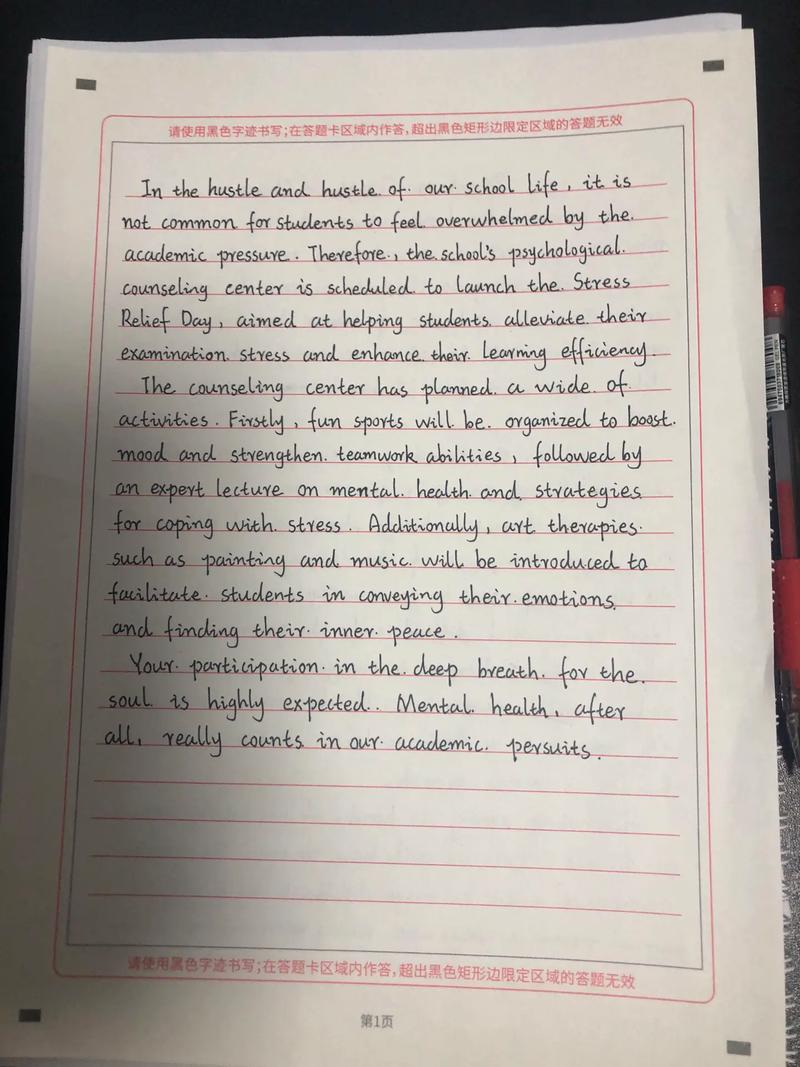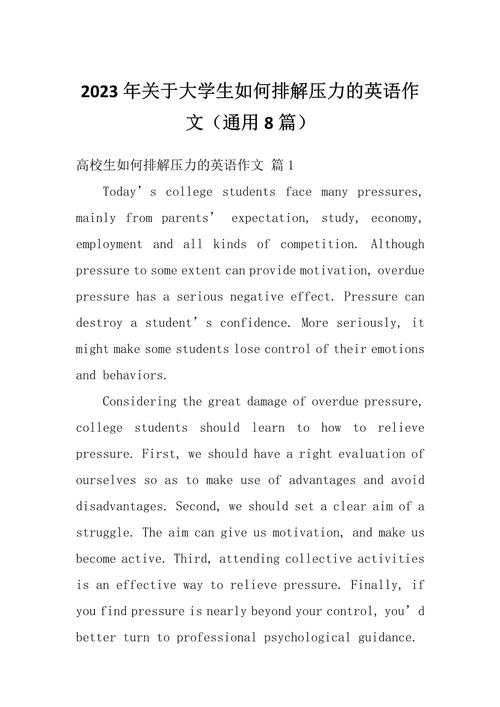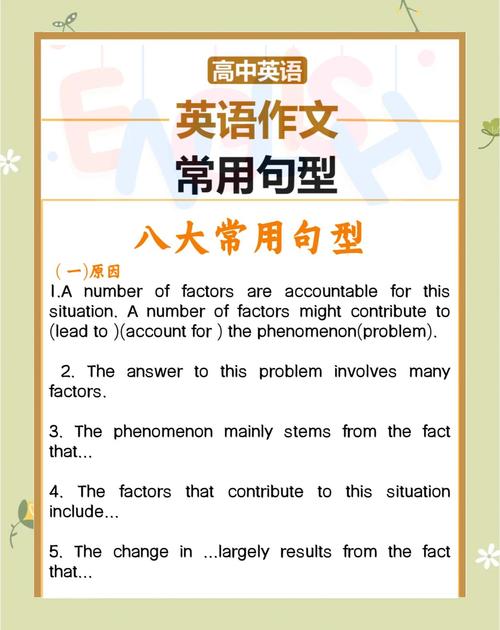高考前如何减压英语作文

In the journey of academic pursuit, the college entrance examination, or Gaokao, stands as a significant milestone for high school students in China. As the exam approaches, the pressure mounts, often leading to anxiety, stress, and even burnout. Effectively managing this pressure is crucial for maintaining mental well-being and optimal performance. This essay explores practical strategies to alleviate stress before Gaokao, encompassing psychological adjustment, lifestyle optimization, and environmental adaptation.
Psychological well-being forms the foundation of stress management. Firstly, students should adopt a positive mindset by reframing negative thoughts. Instead of fixating on the fear of failure, focusing on personal growth and effort can reduce anxiety. Cognitive-behavioral techniques, such as challenging irrational beliefs ("I must score perfectly to succeed") with realistic alternatives ("I have prepared diligently, and my best effort is enough"), can foster resilience. Secondly, setting realistic goals helps break the overwhelming pressure of Gaokao into manageable steps. By dividing study targets into daily or weekly tasks, students can track progress and build confidence incrementally. Thirdly, practicing mindfulness and meditation can calm the mind. Spending 10-15 minutes daily on deep breathing exercises or guided meditation can lower cortisol levels and improve concentration. Additionally, expressing emotions through journaling or talking to trusted friends and family members prevents emotional suppression, which often exacerbates stress.
Lifestyle optimization plays a pivotal role in stress reduction. Physical health directly impacts mental state, so maintaining a balanced routine is essential. Regular exercise, such as jogging, yoga, or cycling, releases endorphins, which act as natural stress relievers. Even a 20-minute walk outdoors can refresh the mind and improve mood. Adequate sleep is another critical factor; teenagers require 8-9 hours of sleep per night to consolidate memory and regulate emotions. Establishing a consistent sleep schedule, avoiding caffeine and electronic devices before bedtime, and creating a comfortable sleep environment can enhance sleep quality. Nutrition also influences stress levels; a diet rich in fruits, vegetables, whole grains, and lean proteins provides the necessary energy for brain function, while excessive sugar and processed foods may increase irritability and fatigue. Hydration is equally important, as even mild dehydration can impair cognitive performance.
Environmental and social adjustments further contribute to stress management. Creating a conducive study environment minimizes distractions and enhances productivity. A well-organized, quiet study space with proper lighting and ventilation can help students stay focused. Taking regular breaks during study sessions, such as the Pomodoro Technique (25 minutes of study followed by a 5-minute break), prevents mental fatigue and maintains efficiency. Socially, seeking support from peers, teachers, or counselors can alleviate feelings of isolation. Study groups allow students to share knowledge and emotional support, while professional counselors can provide personalized guidance for managing exam anxiety. Family members should offer encouragement rather than pressure, understanding that emotional support is more beneficial than unrealistic expectations. Additionally, engaging in leisure activities, such as listening to music, drawing, or pursuing hobbies, provides a mental respite and rekindles motivation.

In conclusion, managing stress before Gaokao requires a holistic approach that addresses psychological, physical, and environmental factors. By cultivating a positive mindset, maintaining a healthy lifestyle, and fostering a supportive environment, students can reduce anxiety and perform at their best. Remember, Gaokao is important, but it does not define one's worth or future. With proper stress management, students can face the exam with confidence and resilience.
FAQs
-
How can students balance study and relaxation effectively during the Gaokao preparation period?
Balancing study and relaxation involves time management and prioritization. Students can use techniques like the Pomodoro Technique to structure study sessions with short breaks, ensuring they recharge regularly. Setting aside 30-60 minutes daily for leisure activities, such as exercise, hobbies, or socializing, prevents burnout. Additionally, planning a weekly schedule that allocates specific times for focused study and relaxation helps maintain equilibrium without guilt. -
What should students do if they feel overwhelmed by anxiety a few days before the exam?
If anxiety becomes overwhelming, students should first acknowledge their feelings and avoid self-criticism. Simple relaxation techniques, such as deep breathing, progressive muscle relaxation, or listening to calming music, can quickly reduce stress levels. Talking to a trusted friend, family member, or counselor can provide emotional support. It is also helpful to review study materials briefly but avoid cramming, as last-minute overstudying can increase anxiety. Ensuring adequate sleep and maintaining a normal routine on the eve of the exam can help stabilize both mind and body. (图片来源网络,侵删)
(图片来源网络,侵删)



